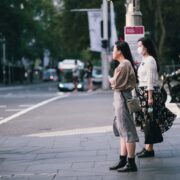Emergency ordinance passes at Board of Supervisors meeting August 4
REDWOOD CITY – An emergency ordinance proposed by San Mateo County Supervisor David Canepa to impose fines for individuals and businesses that violate the state’s COVID-19 health orders, including not wearing face masks in high risk settings, was unanimously passed by the county Board at its meeting on Tuesday, August 4 by a vote of 5-0.
This was learned by the Asian Journal via text messages from Supervisor Canepa.
The emergency ordinance, co-sponsored by Board President Warren Slocum and supported by Sheriff Carlos Bolanos, will treat violations of the health order as a simple administrative infraction rather than as a criminal citation and will apply countywide, according to a release sent out by Supervisor Canepa’s office. Previously, violations of the state’s shelter in place health orders were punishable as a misdemeanor, with fines up to $1,000 and a possible jail sentence of up to 90 days.
“If you don’t wear your face mask, then you should be fined. This ordinance decriminalizes violations of the health order essentially but at the same time gives us an added tool to enforce compliance of the state’s face covering and social distancing mandates,” Canepa, who is Supervisor for District 5 which includes the cities of Daly City, Colma, Brisbane, portions of South San Francisco and San Bruno and the unincorporated Broadmoor Village, said. “If we want to return to normal and save lives then we must wear faces masks, it’s that simple. But since many continue to thumb their noses at or do not understand these mandates, we must step up our outreach and enforcement efforts and let people know if you violate the law there will be consequences.”
The news release also stated that “the use of administrative Enforcement Officers – potentially a range of people designated by county officers with public health or code enforcement responsibilities – will help minimize the enforcement burden on sworn law enforcement officers, who can focus primarily on their criminal law enforcement responsibilities. This may be particularly valuable in the current political climate, where many individuals have expressed concern about the expansion of law enforcement duties beyond the criminal sphere.”
Sheriff Bolanos said, “In my role to ensure public safety, I fully support Supervisor Canepa’s efforts to save lives during this pandemic and stop the spread of COVID-19.”
As proposed, the procedure and fine structure for the ordinance is as follows:
• Infraction – applies to individuals and non-commercial entities
• Enforcement – Officer must observe violation
• Fines – $100 for 1st violation; $200 for 2nd violation; $500 for additional violations within a year of the first violation.
• Appeal process – Written dispute decided by neutral dispute officer; no right to appeal further.
For commercial entities, an Officer can observe the violation or receive a credible report. There is a minimum of $250 and a maximum of $3,000 in fines per violation, depending on gravity of health risk, prior warnings, intent to profit from violation and if there were good faith efforts to comply. The appeals process includes a written or oral hearing before a neutral dispute officer, and subsequent right to appeal to Superior Court.
The release said that “many other counties in the region (including Contra Costa, Marin, Mendocino, Napa, and Yolo) have adopted similar infraction or administrative citation structures to allow them to issue fines to enforce face covering mandates and other public health orders.”
San Mateo County was added on the state’s county monitoring list on Wednesday, July 29, the last Bay Area county to be added on the watchlist. The county’s failure to get its numbers to acceptable levels under California’s guidelines saw the county dial back its reopening process.
Starting Sunday, August 2, the county told many indoor businesses that it had to close or move its operations outside. This included churches/places of worship, barber shops, gyms, hair and nail salons and indoor shopping malls. Also told to close were businesses offering tattoos, piercings and electrolysis whose services may not be operated outdoors.







